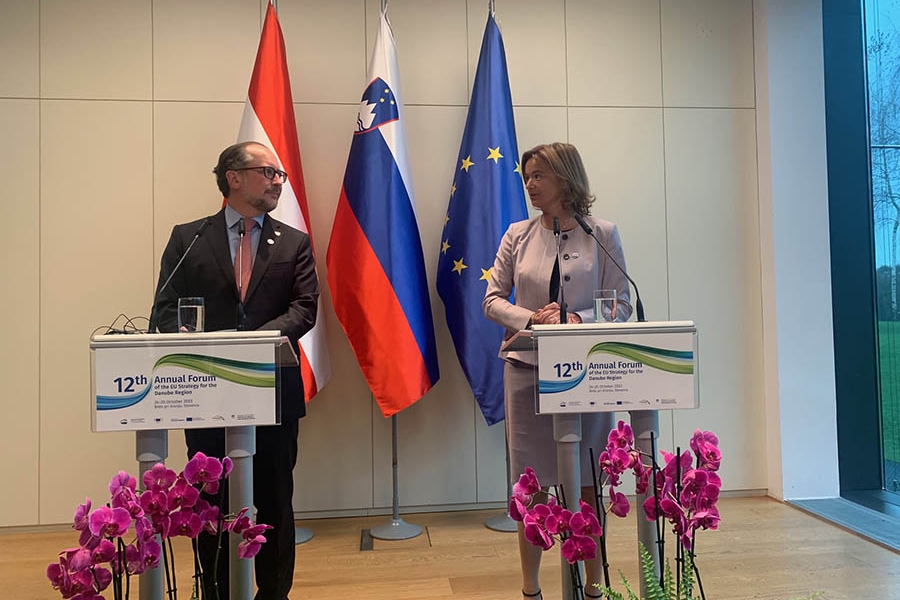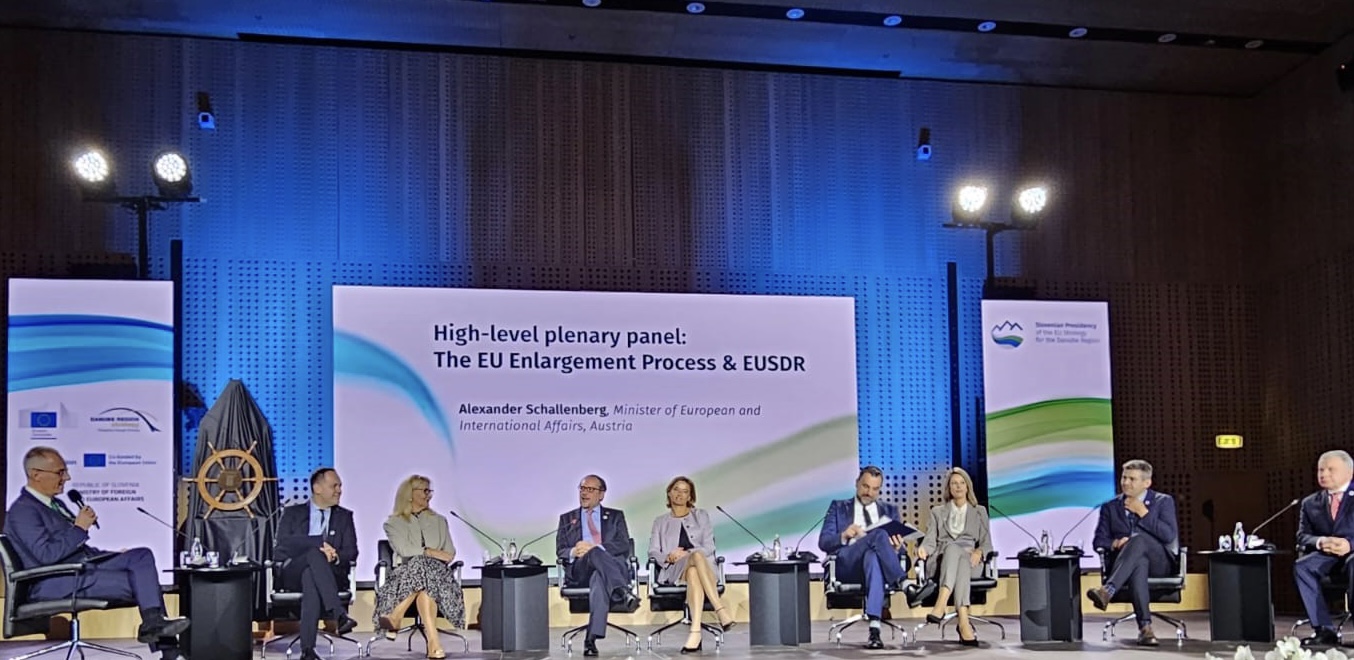It is necessary to de-escalate in order not to repeat the tensions, the head of Slovenian diplomacy said.
It is unacceptable to celebrate those responsible for what happened in Banjska as heroes, said the Minister of European and Foreign Affairs of Austria.

It is necessary to de-escalate in order not to repeat the tensions, the head of Slovenian diplomacy said.
It is unacceptable to celebrate those responsible for what happened in Banjska as heroes, said the Minister of European and Foreign Affairs of Austria.

The only way to normalize relations between Belgrade and Pristina is to return to the negotiating table, Slovenian and Austrian officials Tanja Fajon and Aleksandar Schallenberg told Demostat today during the summit of the Danube Strategy at Brdo near Kranj. Fajon, Minister of foreign affairs of Slovenia, in response to our question, said that "I hope that the Brussels dialogue will continue this week, and that the leaders of both Kosovo and Serbia will be present".
Fajon said:"for our part, we have always stressed that there must be de-escalation and normalization, in order not to repeat tensions, and I expect and hope for the continuation of talks this week in Brussels."
Aleksandar Schallenberg, Minister of European and Foreign Affairs of Austria, pointed out that "the proposal of an agreement" (the so-called Ohrid Agreement) is on the table, "that is the only thing that is being negotiated", and that "Serbia must bring to justice these responsible" for what happened in Banjska. "It is unacceptable to celebrate these responsible for what happened as heroes, it is not sending a good message to Europe," Schallenberg said.
At the opening of the Danube Strategy Summit, Fajon pointed out that the Danube region is one of the "most diverse regions" of the world, and that in this area we saw "solidarity and cooperation, not only in words, but also in deeds, in the time of corona, Russian aggression in Ukraine, floods in Slovenia"...
She called on the European Commission to give a"tangible impetus" to EU enlargement. Fajon, whose country completes the presidency of the Danube Strategy, assessed that this region is"vulnerable", and that the Declaration adopted by the participants of the gathering(ministers from 14 countries) "highlighted strong support for Ukraine and condemnation of Russian aggression in Ukraine".

Foto: Demostat
Tanja Miscevic pointed out that countries that have been in the process of joining the Union for a long time, such as Serbia, are ready to pass on the experiences from this process to the "troika" consisting of Ukraine, Georgia and Moldova, so as "not to repeat some of our mistakes". According to Minister Miš?evi?, these mistakes were sometimes political ones, largely as a result of the legacy of the 1990s, and sometimes they were caused by insufficient understanding of the process of European integration itself, that is, that at some moments it was not understood that reforms should not be implemented "because Brussels wants it, but because it is in the interest of our citizens". As she pointed out in the countries that aspire to membership, "reform fatigue" is noticeable, but "I think we are waking up now because we have been given a new momentum". Fajon agreed with Miš?evi? that there were many mistakes, including mistakes made by the EU"which promised and did not fulfill some promises", as well as by the candidates themselves, but "it is necessary to use this new momentum" for EU enlargement.
In the opinion of Tanja Fajon, "it is very important the promise from Bled of the year 2030" as a possible date for the enlargement of the Union. As she explained,"We need a strong, united Europe, we need each other". "Maybe 2030 it sounds naive, but we have to get out of the box, I am optimistic that it is possible for the EU to accept the countries of the Western Balkans and the Eastern Partnership at that time, said the head of Slovenian diplomacy.
Speaking on this topic, Tanja Miš?evi? stated that Serbia has started working on a plan for the implementation of steps in order to prepare for membership by 2030.
The Declaration of the Danube Strategy Summit, which brings together representatives of 14 countries, including Serbia, points out, among other things, that the Danube region faces significant challenges, "in the field of energy, economy, health (covid-19 pandemic), and the continuation of the Russian invasion of Ukraine, which was not provoked". At the same time, it strongly condemns the continuation of "Russian aggression in Ukraine" and expresses "full solidarity with the people of Ukraine". Also, the document mentions "Russian military strikes on the port infrastructure of the Danube", stressing that this "not only undermines global food security", but also violates freedom of navigation on the Danube.
In all societies there are issues that are rather being skipped. Certain...
The neoliberal path, started in 2001, has led to especially bad results in Serbi...
For centuries, the region was subsumed within the Ottoman and Hungarian Empires,...
"Serbia has returned to the systemic and anti-systemic position of the political...
In reality, Serbia is closer than ever to NATO. In the course of the last five y...